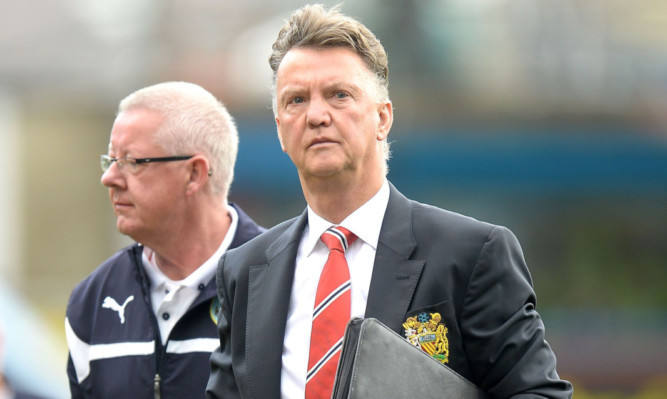
A lot of numbers have been flying about Old Trafford.
There was £214.8-million the wage bill for last season, a rise of almost 20% on the previous campaign.
Then there was £433-million the club’s record annual income and £343-million the debt it still has to service.
The David Moyes Era cost £5.2-million in compensation pay-outs, the players signed this summer another £150-million.
Financial analysts have forensically dissected the figures in the club’s annual balance sheet, and concluded that Manchester United had better get themselves back on track on the field pretty damned quick or they could be in trouble.
Only one number matters today, though. Three the points they will take if Louis van Gaal wins his first game.
Opponents QPR, who have been playing their own numbers game with the news that they could be fined £40-million for breaching Football League financial fair play regulations, would probably not have considered that they’d be in the position of potentially becoming Van Gaal’s first scalp with the campaign already a month old.
But after defeats by Swansea and MK Dons, and draws against Sunderland and Burnley, the Dutchman is still waiting to get off the mark.
The breakthrough really has to come today. More dropped points would be unthinkable.
The club has handed him six new players, the cheapest of which is earning £265-grand-a-week and will cost £50-million if they sign him permanently next summer.
Radamel Falcao was United’s big statement signing of a very expensive window. The loan fee to Monaco is a modest £6-million, but it’s the whole package given to the Colombian that has steered the club in a completely new direction.
Sir Alex Ferguson once criticised Manchester City for paying “stupid money” and “silly salaries.” United don’t operate like that, he said. Well, now they do.
They’ve gambled big on Falcao, Angel di Maria, Marcos Rojo, Daley Blind, Luke Shaw and Ander Herrera because they desperately need to get back into the Champions League next season.
Executive vice-chairman Ed Woodward went even further by stating that the club had budgeted for third place in the Premier League.
That means finishing ahead of two from City, Chelsea, Liverpool and Arsenal, all of whom have also invested heavily in their squads.
After the Busby Babes and Fergie’s Fledglings, it’s now looking like the ‘Van Gaal-acticos.’
The manager argues that he has let twice as many players leave as he’s brought in order to free up squad berths for academy-produced youngsters.
United have had at least one home-grown player in their matchday squad since 1937, an incredible 3,623 consecutive games.
Despite all six new signings likely to figure in the 18, you can be sure that Van Gaal will be politically astute enough not to break that sequence today.
“When you see my line-ups, there are several young players who have played already so I don’t think I have changed my philosophy,” he says.
“We have had to change the selection to give a new rhythm in our dressing-room. When you are a substitute for more than two or three years, do you think it’s a good thing for players? No, I don’t think so. So my philosophy then is that you have to sell or send players on loan.
“It’s better for them and better for the atmosphere in the dressing-room. We have let go 14 players and bought six, so there are eight vacancies for young players.”
Nonetheless, critics have seized on the sale of Danny Welbeck to Arsenal for a cut-price £16-million as evidence that there is a sea change at the club.
Ferguson’s former assistant Mike Phelan claimed United were “losing their identity”. Gary Neville said it was “strange.”
Van Gaal simply explained that Welbeck didn’t score enough goals.
“I have said that he didn’t reach the standards of Van Persie and Rooney,” he says. “He has had the chance for three years and always Van Persie was playing or Rooney was playing.”
He has a point, of course, but letting him leave for Arsenal, arguably United’s chief rivals for that third spot, is the real puzzle.
With Olivier Giroud out injured until the New Year, United could have effectively deprived Arsene Wenger’s team of a goal threat for half-a-season by refusing to
sell.
If Welbeck does for the Gunners what van Persie did for United when he made the reverse journey, it will be a decision they may regret making.

Enjoy the convenience of having The Sunday Post delivered as a digital ePaper straight to your smartphone, tablet or computer.
Subscribe for only £5.49 a month and enjoy all the benefits of the printed paper as a digital replica.
Subscribe